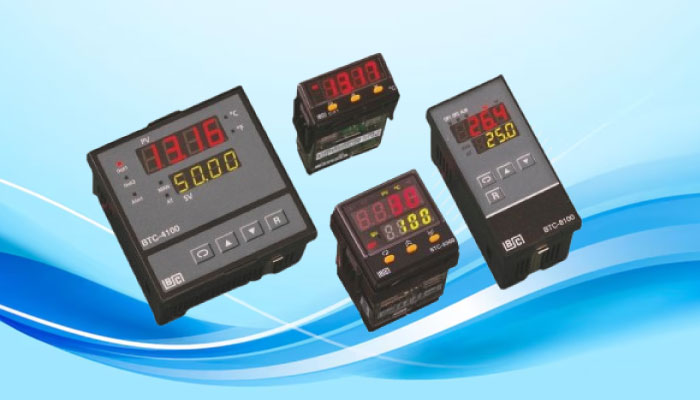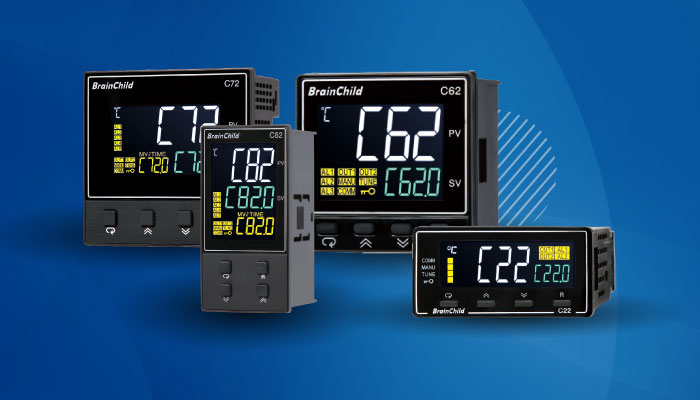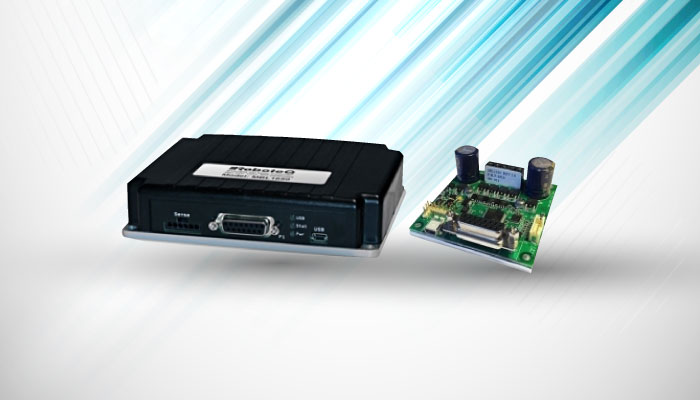Revolutionizing Industries Empowering Success with Cutting Edge Industrial Automation Solutions

In today's rapidly evolving industrial landscape, technological advancements are reshaping the way businesses operate. One of the most transformative innovations in recent years is industrial automation. Industrial automation, in technical terms, refers to the use of advanced industrial control systems, computer technology, and machinery to automate various industrial processes and tasks. It involves the application of technologies like programmable logic controllers (PLCs), sensors, robotics, artificial intelligence (AI), Process Control Instruments, Temperature Control Systems, and Accessories to operate and manage machinery and processes with minimal human intervention. The primary objectives of industrial automation are to enhance efficiency, productivity, quality, and safety in manufacturing and industrial operations while reducing human error and labor costs. It encompasses a wide range of applications, from factory automation and process control to the implementation of smart manufacturing systems and the Industrial Internet of Things (IIoT).
Let us explore the importance of industrial automation solutions in various industries, devices, and their applications, and discuss why companies should embrace automation.
The Significance of Industrial Automation Solutions
Industrial automation solutions encompass a wide range of technologies, including robotics, artificial intelligence, machine learning, and the Internet of Things (IoT).
One of the primary advantages lies in the automation of repetitive and manual tasks, which not only accelerates production but also minimizes errors, leading to consistent quality. Furthermore, these solutions provide real-time monitoring and data analysis capabilities, enabling manufacturers to make informed decisions promptly. Predictive maintenance and remote monitoring reduce downtime, enhancing overall equipment efficiency and extending the lifespan of machinery and equipment.
- Enhanced Efficiency: Automation streamlines processes, reduces human error and
boosts productivity. Tasks that once required significant human intervention can now be
performed more efficiently and accurately by machines. - Cost Reduction: Automated systems often lead to reduced labor costs and operational
expenses. By optimizing resource utilization, businesses can achieve substantial savings
in the long run. - Improved Safety: Dangerous and repetitive tasks can be assigned to machines,
minimizing the risk of workplace accidents. Human workers can focus on more complex
and value-added activities. - Quality Assurance: Automation ensures consistent product quality by eliminating
variations caused by human error. This is particularly crucial in industries like
manufacturing and pharmaceuticals. - Scalability: Automated systems can adapt to changing demands and scale production or
processes up or down as needed, providing flexibility to meet market fluctuations.
Automation Devices and their Applications
Industrial automation relies on a diverse range of devices and technologies, each tailored to specific tasks and industries. These devices play a vital role in optimizing processes, enhancing efficiency, and improving overall productivity. Here's a closer look at some of the key automation devices and their applications:
- Robotics: Industrial robots are highly versatile machines that find applications across
various industries. They excel in tasks that require precision, speed, and repeatability.
Common applications include welding, painting, pick-and-place operations, packaging,
and even surgical procedures in the healthcare sector. - Programmable Logic Controllers (PLCs): PLCs serve as the control center for many
automated systems. They are designed to monitor and control machinery and processes in real-time. PLCs use predefined logic to make decisions, ensuring that equipment operates as intended. These controllers are integral to industries like manufacturing, automotive, and food processing. - Sensors: Sensors are crucial components of industrial automation, collecting data on
various parameters such as temperature, pressure, humidity, and motion. This data is
essential for monitoring equipment health, ensuring workplace safety, and enabling predictive maintenance. Sensors are widely used in sectors like manufacturing,
agriculture, and healthcare. - IoT Devices: The Internet of Things (IoT) has revolutionized industrial automation by
connecting devices and equipment to the Internet. These devices provide real-time data
on the status and performance of machinery. IoT devices enable remote monitoring and
control, making them invaluable for predictive maintenance, energy management, and
process optimization. - Artificial Intelligence (AI) and Machine Learning: AI and machine learning technologies
are increasingly integrated into industrial automation systems. They analyze vast datasets
to make predictions, detect anomalies, and optimize processes. In manufacturing, AI-
driven automation is used for quality control, demand forecasting, predictive maintenance, and energy efficiency improvements. - Human-Machine Interfaces (HMIs): HMIs are user-friendly interfaces that allow operators to interact with automated systems. They include touchscreen panels, graphical displays, and software applications. HMIs are essential for monitoring equipment status, making adjustments, and receiving real-time feedback.
- Motion Control Systems: Motion control devices and systems are used to precisely
control the movement of machinery and robotic components. These systems find
applications in CNC machining, 3D printing, and robotics for tasks like assembly,
cutting, and milling.
These automation devices and technologies work in harmony to drive efficiency, improve product quality, enhance workplace safety, and reduce operational costs across various industries. As automation continues to advance its applications will expand, offering new possibilities for industries worldwide.
Why Companies Should Adopt Automation?
Embracing industrial automation solutions offers numerous benefits, making it a compelling choice for businesses:
- Competitive Edge: Companies that automate gain a competitive advantage by delivering
products faster, more consistently, and at a lower cost than their competitors. - Resource Optimization: Automation ensures efficient use of resources, including labor,
materials, and energy. This results in cost savings and minimizes waste. - Quality Improvement: Automated processes reduce defects and enhance product quality,
leading to increased customer satisfaction and loyalty. - Data-Driven Decisions: Automation generates valuable data that can inform strategic
decisions, drive innovation, and identify areas for improvement. - Safety: By automating dangerous tasks, companies prioritize employee safety, reduce
workplace accidents, and comply with stringent safety regulations. - Sustainability: Automation contributes to sustainability efforts by optimizing energy
consumption and reducing environmental impact.
Industrial automation solutions are revolutionizing industries by improving efficiency, reducing costs, enhancing safety, and driving innovation. As technology continues to advance, companies that embrace automation will be better positioned to thrive in an increasingly competitive and fast-paced business environment. Embracing automation is no longer an option but a necessity for companies looking to secure their future in the industrial landscape.
Get the best industrial automation solutions with THETA CONTROLS
THETA CONTROLS offers various Industrial Control Systems, Process Control Instruments,
Temperature Control Systems, and Accessories to ensure customer satisfaction in various
industries.
Our solutions offer
- Improves precision and flexibility
- Lower direct labor costs and expenses
- Boosts productivity
- Improves process or product consistency
- Delivers high-quality products
Email us: info@thetacontrols.com


